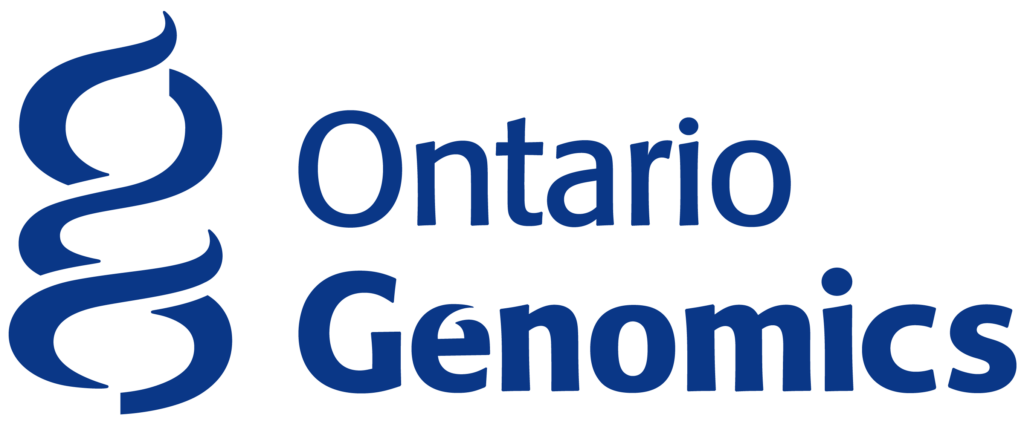
This course caters primarily to individuals engaged in pathology practice or research who do not have much experience with advanced computation or bioinformatics. No knowledge of bioinformatics, programming, or use of the command-line interface is required to fully appreciate the course content.
OMPRN will fully cover the course registration fee and provide support for travel and accommodation for pathologists and pathology trainees* (details below).
Email support@bioinformatics.ca with any questions.
The characterization of sequence variants in a patient’s tumour is key to individualized cancer care. Next-generation sequencing (NGS) is used widely to identify genetic variants in clinical oncology samples. Clinical laboratory professionals and researchers tasked with interpreting molecular results would benefit from understanding the strengths and limitations of the chemical processes and instruments that generate those data. Furthermore, an understanding of the processes by which NGS data are produced and analyzed would help with sample workflow optimization and assay troubleshooting in a clinical lab or research setting. This two-day workshop will cover the distinct sequencing chemistry used by several common NGS platforms, as well as methods for downstream data analysis and interpretation.
Participants will gain an understanding of and develop skills relating to:
- Nucleic acid sequencing technologies and their chemistries
- NGS data quality control
- Sequence alignment and visualization
- Variant calling
- Online sequence databases and analysis tools
- Variant annotation
- Protecting patient health data
This course is intended to introduce learners to the chemistry and computational biology techniques associated with several of the most common NGS platforms used for sequencing clinical samples. Learners seeking in-depth bioinformatics training to extend on the knowledge gained from this course are encouraged to visit bioinformatics.ca to explore more advanced workshops.
* For the purpose of this course, a pathologist is defined as: EITHER an MD with certification from the Royal College of Physicians and Surgeons of Canada (RCPSC), or an equivalent governing body in another jurisdiction, in Diagnostic and Molecular Pathology, Diagnostic and Clinical Pathology, Hematopathology or Neuropathology with hospital responsibilities; OR, an MD or PhD clinical laboratory scientist with Canadian College of Medical Geneticists (CCMG) fellowship or equivalent with hospital responsibilities.
A pathology trainee is a pathology resident with an MD degree enrolled in an Ontario-based residency-training program or an Ontario-based CCMG training program. Postgraduate pathology trainees who have completed or are eligible to undertake the RCPSC certification examinations but who have not yet assumed a faculty or staff position will be eligible to occupy the role of trainee for up to 24 months after completion of their PGY5 year. Faculty members cannot be considered trainees.
Participants will gain practical experience and skills to be able to:
- Describe the similarities and differences in library preparation, sequencing chemistry and data file formats for Illumina, Thermo Fisher and Nanopore platforms
- Evaluate the suitability of different MPS platforms for sequencing clinical research samples based on their relative strengths and limitations
- Relate errors in laboratory workflow and bioinformatic pipelines to low-quality sequencing results
- Clinical laboratory professionals (MD, PhD) and research trainees (residents, graduate students, postdoctoral fellows) who use nucleic acids sequence data from human tissue for clinical research.
- Members outside of the pathology community are invited to apply but will be responsible for the cost of their own registration, travel and accommodation.
- No knowledge of bioinformatics, programming, or use of the command-line interface is required to fully appreciate the course content.
None
Module 1: Introduction to NGS in molecular pathology and in-lab demonstrations of sequencing platforms
Introduction:
- The role of NGS in precision medicine and research
- Typical NGS workflows
Lab tour:
- Illumina sequencing
- Ion (Torrent) sequencing
- Nanopore sequencing
Digging into sequencing:
- Compare and contrast sequencing chemistry of the three platforms
- How does sequencing and base-calling work on each platform?
- How does barcoding work and why is it useful?
- Common pre-analytic errors – how to detect and how to remedy
- Computer setup for Day 2 activities
Module 2: NGS file types and how to work with them
- What does the raw sequence data look like from each platform (Illumina, Ion, Nanopore)?
- How can raw sequence data be used to determine overall run quality?
- What are base quality scores and how are they calculated on each platform?
- Comparing error rate between the two platforms; what are the sources of error (library preparation, raw signal detection, base-calling, etc)
- What are the strengths of each platform (error rate, throughput, sensitivity, single-molecule vs PCR-amplified library, real-time analysis, turnaround time, portability, cost, etc)
- Why are these parameters important in tumour sequencing? When is one platform better than the other?
Hands-on exercise – Assessing FASTQ file quality
- FASTA statistics using FastQC (GUI only)
Hands-on exercise – Variant calling and visualization using IGV
- SNV analysis
- CNV analysis
- Indel analysis
- Understanding and manipulating VCF files
- Understanding allele fraction
- Visualizing variants using IGV
- Wrap-up, open discussion and evaluations
Opportunities for knowledge extension (time-, interest-, and expertise-permitting):
- Automating analysis using bioinformatics pipelines
- Sources of error during bioinformatics analysis and variant interpretation
- Scaling up analysis for large-scale research projects
- Validating bioinformatics pipelines (brief intro)
Duration: 2 days
Start: Oct 21, 2024
End: Oct 22, 2024
Status: Registration Closed
Workshop Ended

Canadian Bioinformatics Workshops promotes open access. Past workshop content is available under a Creative Commons License.
Posted on:
 Download the poster announcing this workshop
Download the poster announcing this workshop



